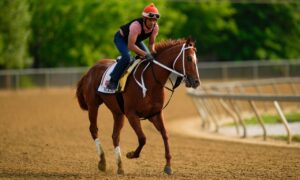
Queen of Virginia, a video company that supplies skill game machines to businesses across the state, has expanded its services to include courthouses as part of its regular visits. The company currently faces approximately 150 lawsuits throughout the commonwealth of Virginia, as reported by Graham Moomaw from the Virginia Mercury who closely monitored the ongoing litigation.
While there are varying levels of activity among the lawsuits, Queen of Virginia alleges that their business partners have breached their contracts by:
- ending their partnership with the skill game company prematurely
- Incorporating skill game machines offered by rival companies.
Queen of Virginia has established games such as “Fishy Loot,” “Lucky Fruit,” and “Living Large” within convenience stores, bars, and restaurants. These skill game cabinets bear a striking resemblance to video slot machines. However, the gaming company firmly asserts that players achieve victory through their skill rather than relying on chance.
The businesses receive 40% of the game revenue, while Virginia Queen and third-party distributors split the remaining 60%. Operators who accommodated Queen of Virginia games typically earned a monthly income ranging from $2,000 to $7,000.
Certain legislators believe that skill games are in violation of Virginia’s gambling regulations. Amid the pandemic, the state permitted retailers to retain these machines as a means of generating revenue. However, there is now a push to eliminate them.
The court process is currently addressing the differentiation between skill games and illegal gambling devices, which has significant implications for the Queen of Virginia’s 150 smaller lawsuits.
Are the skill game machine contracts illegal?
The defendants argue that the skill game company is breaching the Virginia Antitrust Act through its aggressive implementation of non-compete clauses.
The 5-year contracts stipulate that rival machines:
- The business is unable to insert it during the duration of the contract.
- It is not permissible to be inserted until a year has passed since the contract’s termination.
- The restriction extends beyond the business itself and includes any jointly-owned location within a 50-mile radius.
- Additionally, it is the Queen of Virginia who determines if a gaming machine from another company can be considered a rival.
If the business fails to send a written termination notice via certified mail within 180 days, the contract with Queen of Virginia will automatically renew for another five years.
According to Michael Barley, spokesperson for Pace-O-Matic, the parent company of Queen of Virginia, our contractual terms are vigorously protected, as is common practice among most companies.
The businesses are represented by attorneys Stephen Faraci Sr. and Robert Drewry, who contend that the contracts have the potential to be unlawful as they unjustly restrict competition and compel competitors to exit the market.
Virginia legislation is impacting skill game agreements
In 2017, the state of Virginia appeared to approve skill games, asserting that they did not involve chance.
Contrarily, the Virginia Lottery asserts that skill games have a direct effect on the state’s gambling revenue. Virginia does not receive any portion of the earnings generated by unregulated skill game machines.
In July 2021, the Virginia General Assembly’s ban on the machines was touted as a victory by state regulators.
The ban was successfully challenged by the owner of a truck stop in Virginia, leading to a delay in its enforcement as ordered by a judge. As of today, the issue remains unresolved.
According to Richmond lawyer Todd Knode, who is representing multiple business owners, there is an abundance of lawsuits due to the uncertain nature of the law.
Queen of Virginia letter could impact the 150 lawsuits
The bars, restaurants, and convenience stores will have their fate determined by the courts, as they weigh the impact of a letter issued by Jeanna Bouzek, the General Manager of Queen of Virginia.
Bouzek instructed businesses to cease operations of the Queen of Virginia games, but before the truck stop owner successfully obtained a judge’s order to postpone the ban.
In June 2021, the letter was sent to the store owner partners of Queen of Virginia, instructing them to shut down their machines before the ban. The businesses were even warned about potential fines if they failed to comply.
The letter stated:
We are grateful for the business we have had the pleasure of serving and we are proud to have supported small businesses in surviving the challenges posed by the pandemic.
Knode explained, “I argue that the contract had ended once the letter was sent, and Queen of Virginia is now attempting to revive it.”
Attorneys representing Queen of Virginia informed the court that Knode’s reasoning is flawed.
If the defendant’s argument is accepted, all contracts concerning prize-giving games, including carnival games, crane games, and coin-pushers commonly found at places like Dave & Buster’s or Chuck-E-Cheese, would become null and void.
There are several ongoing lawsuits involving multiple Queens. At the same time, the court is scheduled to hear arguments regarding the temporarily lifted ban on November 2nd.






